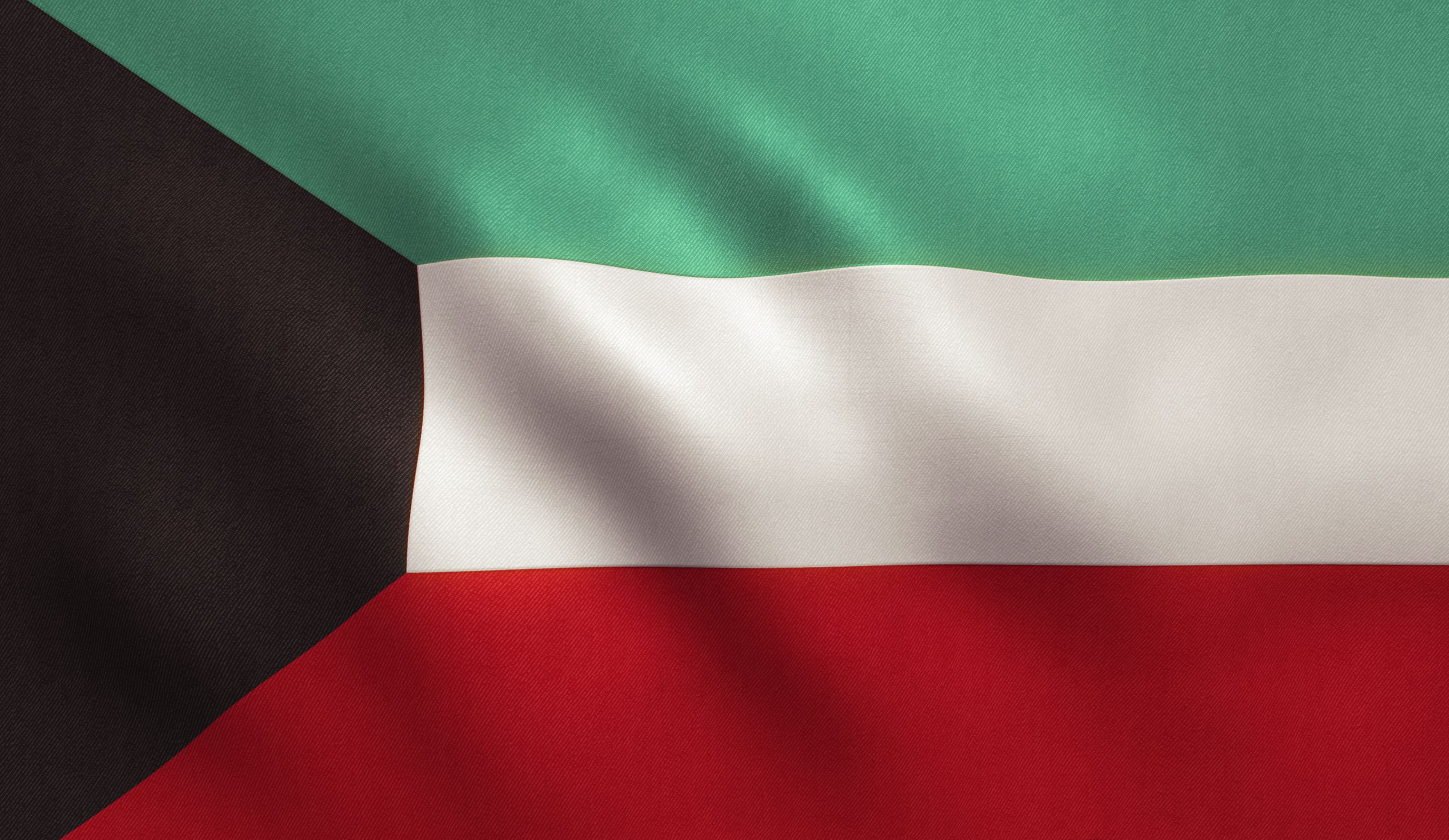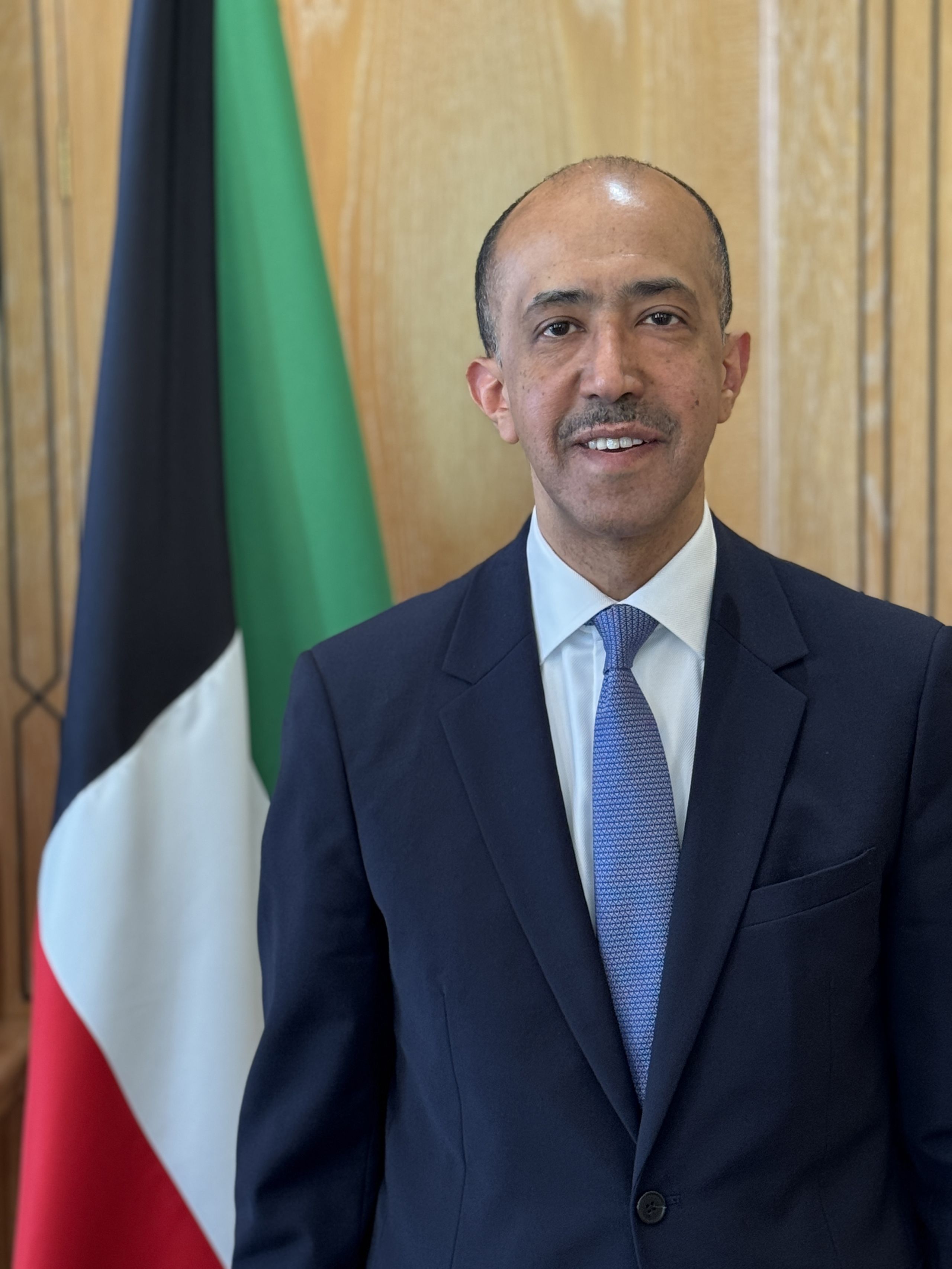His Excellency
Mr Bader A. Almunayekh
Ambassador of Kuwait to the UK

Strengthening Historic Ties in a New Era
When His Excellency Mr Bader A. Almunayekh returned to London in late 2024 as Kuwait’s Ambassador to the United Kingdom, it marked not only a professional milestone but also a meaningful personal chapter. Having served earlier in the Kuwaiti Embassy’s political section over 15 years ago, his return to the British capital now as head of mission reflects a renewed diplomatic mandate at a time of significant global transformation.
“I arrived in London at the end of November 2024, and after all these years, I’m happy to be back,” the Ambassador shared. “London remains a political, financial, and economic hub—and it’s an honour to represent Kuwait here, especially in such a globally influential capital.”
A Changing Diplomatic Landscape
The Ambassador notes that the global diplomatic landscape has changed significantly since he first arrived in London in 2003. “Back then, the world faced different challenges. Today, we’re dealing with multiple active conflicts in the Middle East and Europe, as well as growing threats from climate change, inequality, and poverty,” he explained. “These issues require deeper cooperation and stronger collective responses from the international community.”
As Kuwait navigates this complex environment, the Ambassador’s diplomatic priorities reflect both pragmatism and long-term vision.
Economic Expansion and Academic Partnerships
Among his top priorities in London is enhancing Kuwait’s investment footprint in the UK—something deeply rooted in the historic relationship between the two nations. “The world’s first-ever sovereign wealth fund was established by Kuwait here in London in 1953,” he noted. “Our Kuwait Investment Office in London remains our sole international investment arm, covering both Europe and global operations from the UK.”
Ambassador Almunayekh aims to enhance the KIO’s activities, emphasising that stronger economic ties are mutually beneficial. “Deepening our investment presence here supports the UK economy, and in turn, strengthens our own economic resilience. It’s a win-win.”
He is also focused on academic and healthcare cooperation. He envisions robust partnerships between Kuwaiti and UK universities in research and development, and enhanced collaboration between UK hospitals—both NHS and private—and their counterparts in Kuwait.
“There’s strong potential to expand our trade volume, which currently stands at £6 billion. I’d like to see that figure double during my tenure, and that means identifying key sectors for bilateral cooperation,” he said. “More British companies in Kuwait, more Kuwaiti companies in the UK—that’s the goal.”
A Legacy of Diplomatic Friendship
Trade relations between Kuwait and the UK date back to 1775, and diplomatic relations started in 1899. In 2024, Kuwait and the UK celebrated 125 years of diplomatic relations, commemorating the 1899 Anglo-Kuwaiti Agreement. “The relationship is built on three layers: monarch-to-monarch, government-to-government, and people-to-people,” the Ambassador reflected.
This enduring partnership was celebrated with a yearlong calendar of exhibitions, concerts, and official visits, culminating in two high-profile events: the visit of the Duke of Edinburgh to Kuwait, and His Highness Sheikh Mishael Al-Sabah the Amir of Kuwait’s private visit to His Majesty King Charles III at Dumfries House in Scotland.
“These visits reflect the deep, personal ties between our royal families. His Majesty King Charles visited Kuwait eight times when he was Prince of Wales, while our Amir His Highness Sheikh Mishael Al-Sabah has visited the UK five times,” Ambassador Almunayekh noted.
The people-to-people dimension is also thriving. Since the UK introduced the Electronic Travel Authorisation (ETA) system for GCC nationals, Kuwaiti visits to the UK have increased from 120,000 to over 180,000 annually making Kuwaiti tourists the second highest number of visitors to the UK from the GCC region.

Cultural and Educational Bridges
The Ambassador is especially proud of Kuwait’s contributions to academic institutions in the UK. “We have established academic chairs in Kuwait’s name at Durham University, LSE, and the Oxford Centre for Islamic Studies, but we would like to have more,” he said. “These chairs fund scholarships and foster critical studies that are open to all students and benefit both Kuwait and the region.”
The UK also remains a leading education destination for Kuwaiti students, with over 10,500 currently enrolled—more than in any other country worldwide. “It’s a testament to the strength of our educational ties,” he said.
Kuwait continues to promote cultural dialogue as well. A recent exhibition hosted by the Kuwait Cultural Office in London showcased the works of 14 Kuwaiti artists and drew a wide audience of students and art enthusiasts alike. “Art is a silent language that brings people together,” the Ambassador observed.
Regional Stability and Humanitarian Leadership
Kuwait’s role in promoting regional stability has long been a cornerstone of its foreign policy. As current Chair of the Gulf Cooperation Council (GCC), Kuwait is actively working to reduce tensions and foster cooperation in the Gulf.
“All of our neighbours have ambitious development plans, similar to Kuwait Vision 2035. But for these to succeed and flourish, we need a stable region,” he emphasised. “We believe in non-interference, respect for international law, and the UN Charter. These are the principles we stand by.”
Kuwait has also taken a leading role in humanitarian aid, working closely with the UK to jointly fund relief efforts through UN agencies such as UNICEF in crisis zones like Gaza and Yemen. “We’re proud to lead on the humanitarian front in any conflict—whether in our region or globally,” the Ambassador said.
Today, we’re dealing with multiple active conflicts in the Middle East and Europe, as well as growing threats from climate change, inequality, and poverty… These issues require deeper cooperation and stronger collective responses from the international community.
Diplomatic Challenges and Aspirations
Looking ahead, Ambassador Almunayekh identified economic diversification as Kuwait’s foremost diplomatic challenge. “Our economy is still heavily dependent on oil. Attracting more foreign direct investment and diversifying our economy is critical,” he said.
A major diplomatic objective is securing the long-awaited Free Trade Agreement between the UK and the GCC. “This deal would be transformative for both sides. The UK is one of the world’s largest economies, and the GCC is a vital regional bloc. We hope to finalise the FTA during our GCC chairmanship.”
Reflections on a Diplomatic Career
Reflecting on his career, the Ambassador recalled two defining moments. First, his time at Oxford University’s Diplomatic Studies Programme in 1998—an experience that shaped his diplomatic skills in legal, political and economic fields and connected him with peers from across the globe. “We were 34 diplomats from 34 countries, and the majority of us still stay in touch,” he said.
Second, he recounted his role as Deputy Permanent Representative during Kuwait’s 2018–2019 tenure on the UN Security Council. “For a small country like Kuwait, to be on the Security Council was a proud achievement,” he said. “We introduced Resolution 2474 on missing persons in armed conflict – something very personal for us given that we still have 308 Kuwaiti and third country nationals missing from the 1990 Gulf War.”
A Personal Touch
Outside diplomacy, the Ambassador finds joy in simple, active pursuits. “I love football, swimming, jogging—any outdoor activity,” he smiled. “Fortunately, both the embassy and residence are near London’s Royal Parks, which makes it easy to enjoy fresh air and nature.”
As Kuwait continues to build bridges in diplomacy, education, trade, and humanitarian aid, Ambassador Almunayekh’s tenure promises to be one of deepened cooperation and renewed commitment to global peace and prosperity—anchored in a 125-year legacy of friendship with the UK.
